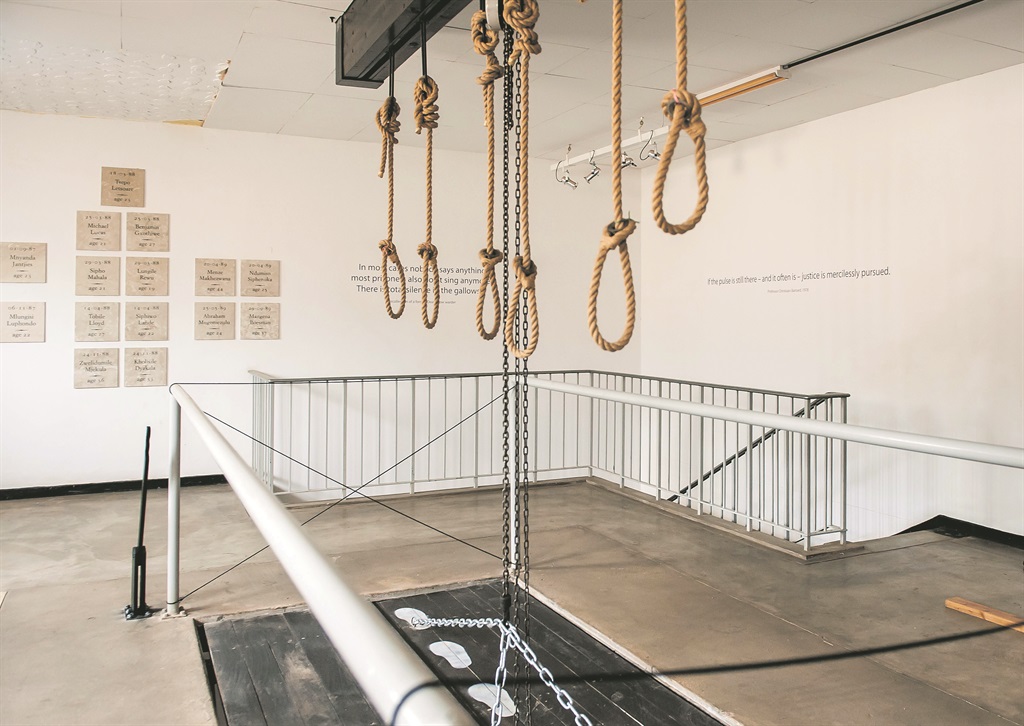
Republican US presidential nominee Donald Trump said last year that, if he was elected, he would sign an executive order to make the death penalty mandatory for murderers of police officers.
So far this year, 29 police officers have been murdered in the US, some of them apparently as a result of anger at police officers over the killings of black people.
Whether or not Trump would have the power to issue an order making the death penalty mandatory is not clear. Any such order would certainly be challenged in the Supreme Court. Last year, Pennsylvania became the 18th US state to abolish the death sentence. By the end of last year, two-thirds of all countries had stopped executing people.
South Africa abolished the death penalty in June 1995 following a decision by the Constitutional Court. It declared that capital punishment was “cruel and unusual”. One of the judges, Pius Langa (later a chief justice), said that the emphasis he placed on the right to life was influenced by our history. Although heinous crimes were the antithesis of ubuntu, so was cruel and unusual treatment.
While Trump appeals to popular opinion, our Constitutional Court was careful to say that human rights were more important. Ironically, it was an American judge, Robert Jackson, whom our court quoted in this regard: “The very purpose of a Bill of Rights is to withdraw certain subjects from the vicissitudes of political controversy, to place them beyond the reach of majorities and officials, and to establish them as legal principles to be applied by the courts. One’s right to life, liberty and property, to free speech, a free press, freedom of worship and assembly, and other fundamental rights may not be submitted to vote; they depend on the outcome of no elections.”
One of the reasons the Americans have not yet put the death penalty behind them is that the US’s Constitution is ambivalent.
Although it outlaws cruel and unusual punishment, it also permits the death sentence. The US Supreme Court has tried to deal with this apparent contradiction by authorising capital punishment in states that have introduced guidelines for judges and juries to ensure that the death sentence is not arbitrarily carried out, therefore avoiding the “cruel and unusual” problem.
Our Constitutional Court decided that this was impossible. Arbitrariness was unavoidable because judges needed discretion to find whether or not there were extenuating circumstances.
This problem could be avoided only by mandatory sentencing – which undermined the vital principle of individualised sentencing.
Research by the Institute of Race Relations for a forthcoming study on capital punishment shows that some judges in the past bent over backwards to find extenuating circumstances so that they could avoid imposing a mandatory death sentence. So, as our Constitutional Court admitted, whether or not an accused was sentenced to death could depend on which judge tried the case, or even which judges heard any appeal.
Another point made by our Constitutional Court was that “poverty, race and chance play roles in the outcome of capital [punishment] cases, and in the final decision as to who should live and who should die”.
One of the reasons for differential outcomes was that poor people charged with capital offences would often have to rely for their defence on dedicated but nevertheless inexperienced pro deo counsel. Richer people would be able to engage the best counsel and firms of attorneys, along with expert witnesses, and private investigators and researchers.
With the help of the Wits Justice Project, the Institute of Race Relations identified several people in South African prisons sentenced to life imprisonment for the murder of police officers who were released more than a decade later – after their innocence was demonstrated. The project said that there were no official statistics on wrongful convictions, but that there were probably other people behind bars who were in a similar predicament.
Wrongful imprisonment is, of course, a terrible wrong, but at least the victim can be released if the wrong is uncovered. This is impossible with a wrongful execution, and it is the most powerful argument against the death penalty. One of the judges in the decision made by the Constitutional Court, John Didcott, admitted that mistakes “do occur now and again”. This has definitely happened in the US.
Many people will no doubt argue that murder is itself so “cruel and unusual” that it warrants the cruel and unusual punishment of the death sentence. However, as Lord Gardiner, a top British judge quoted by our court, said: “Human beings who are not infallible ought not to impose a form of punishment which is irreparable.”
Kane-Berman is a policy fellow at the Institute of Race Relations, a think-tank promoting political and economic freedom
TALK TO US
Do you think the death sentence should be abolished worldwide?
SMS us on 35697 using the keyword DEATH. Please include your name and province. SMSes cost R1.50




 Publications
Publications
 Partners
Partners








